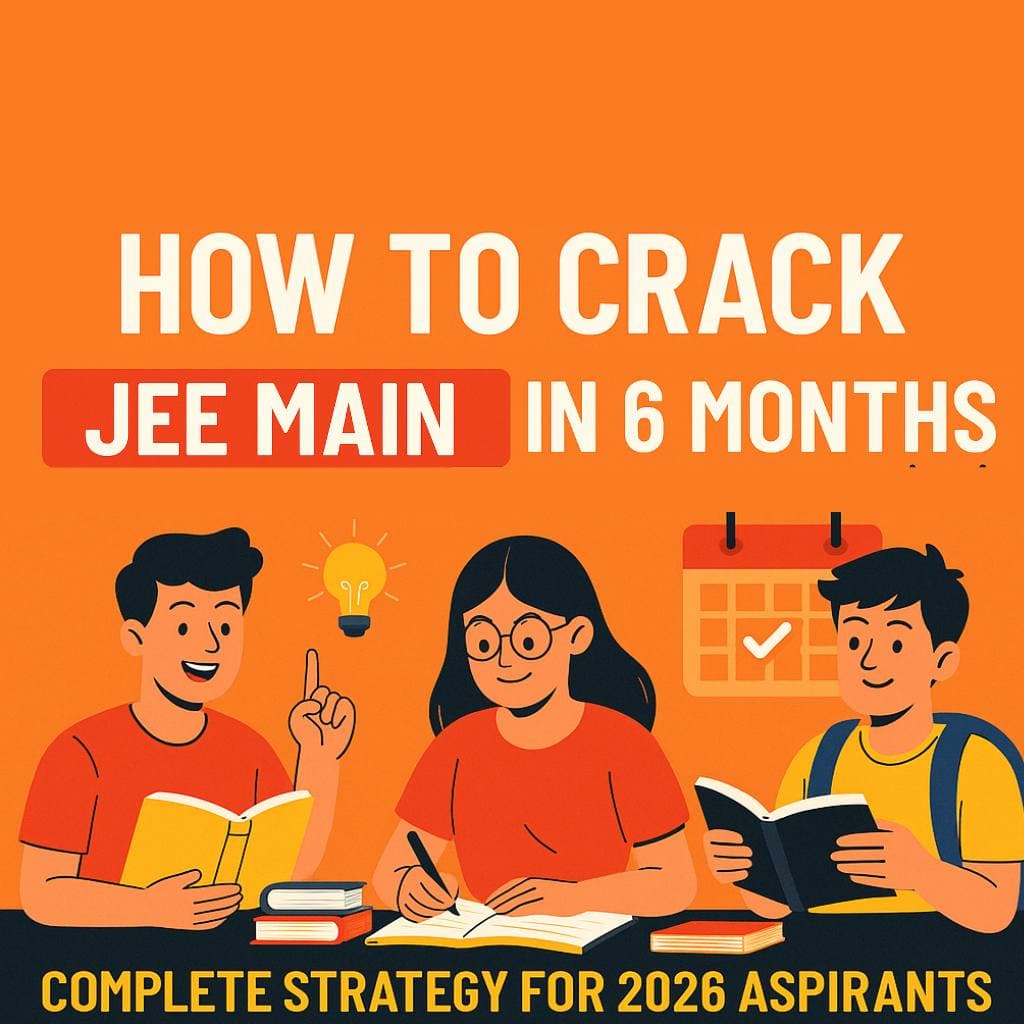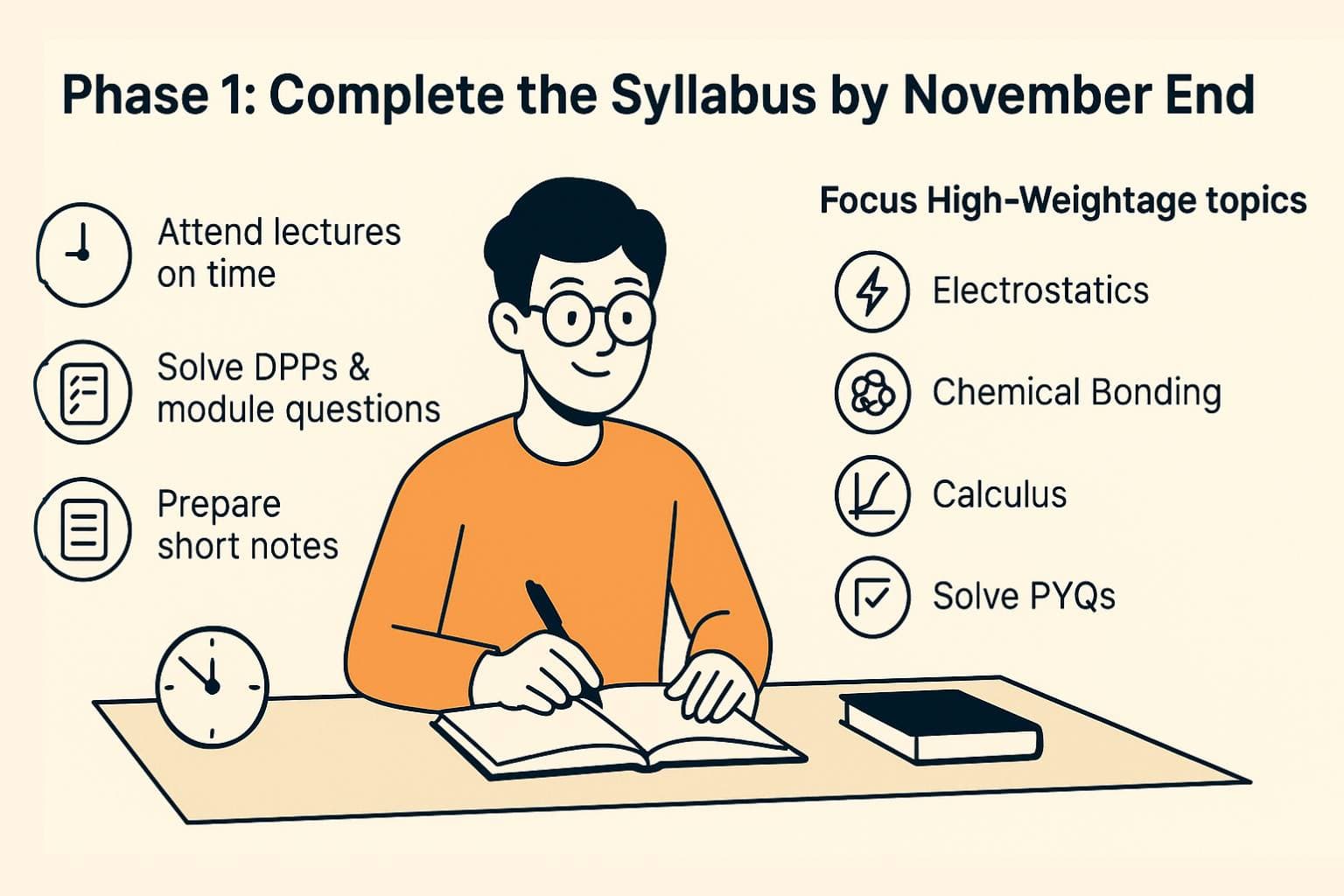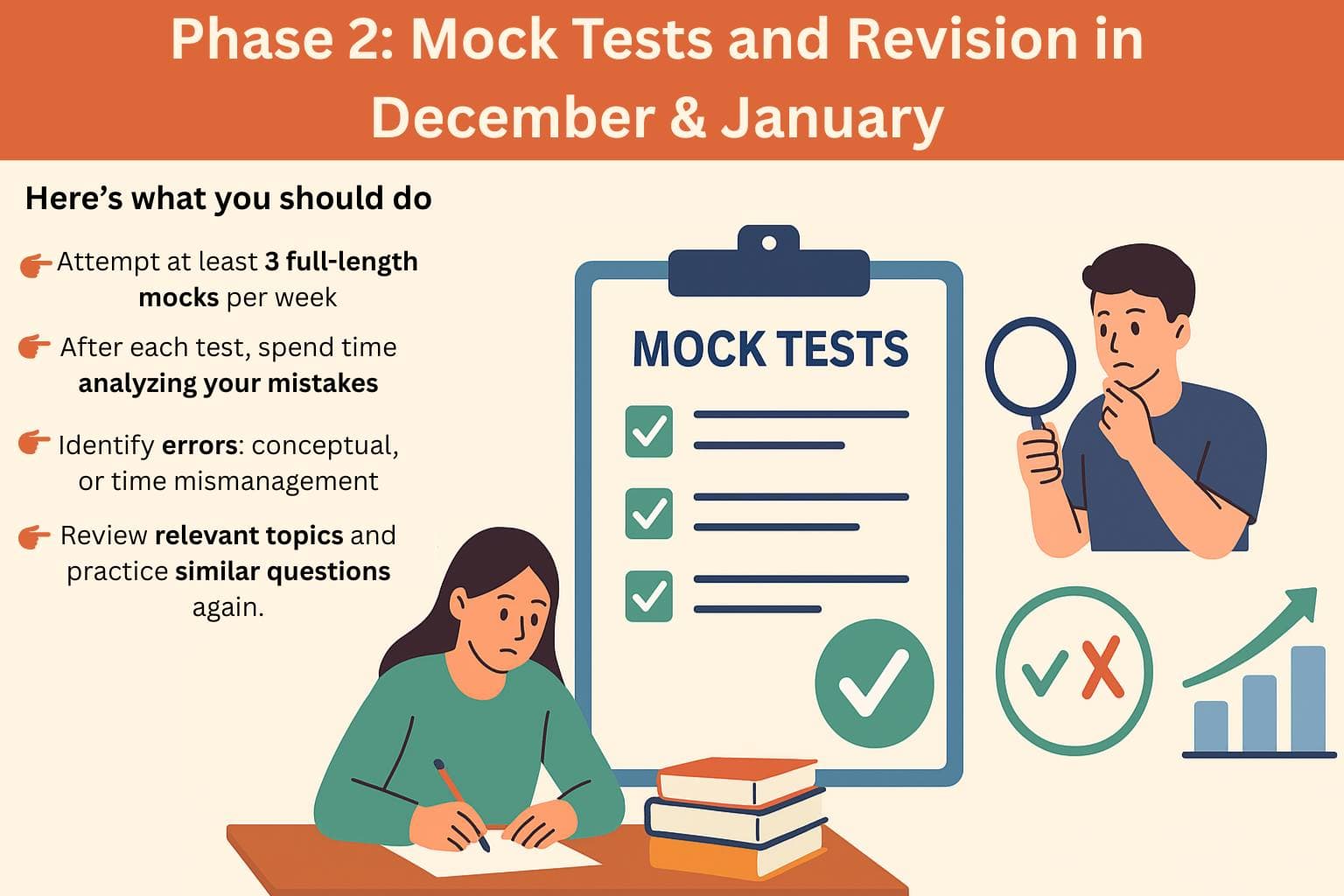How to Crack JEE Main in 6 Months: Complete Strategy for 2026 Aspirants
Pratham Jiwnani
7/20/2025

If you're preparing for JEE Main 2026 and feeling like you're running out of time, you're not alone. With only six months left, many students begin to panic or question whether it’s still possible to crack the exam. The good news? It is, but only if you start with the right strategy and mindset today.
This guide breaks down a realistic, actionable plan to help you cover the syllabus, manage backlogs, and practice efficiently, all in six months. No fluff, no gimmicks, just what works.
Start with the Right Mindset
Before you worry about timetables and mock tests, take a moment to reset your mindset. Many aspirants feel lost at this stage, maybe your Class 11 concepts are weak, or you haven’t been consistent so far. That’s fine. What matters now is what you do next.
Remember, JEE is not about how fast you start, but how consistently you move in the right direction. If you’re serious about cracking JEE Main, stop focusing on what you haven't done and commit to giving your best for the next 180 days.
Building a routine takes three days. Turning it into a habit takes around three weeks. Once that habit sticks, you'll start noticing real changes in your confidence and performance.
Set a Clear Target Before You Start
It's important to begin your preparation with a goal in mind. Ask yourself: what are you aiming for?
Instead of simply trying to qualify, aim for a solid percentile, preferably above 99. That usually means scoring between 160 to 200 marks depending on the paper’s difficulty. When your target is clearly defined, you’ll be more focused and less likely to waste time on irrelevant tasks.
Also, think about the college or branch you want. Once your goal is clear, use tools like the JEE Main Branch Predictor to map your desired score to specific NITs or IIITs. This gives you something tangible to work toward.
Stick to One Teacher per Subject
Many students waste time switching between teachers, YouTube channels, and course platforms, hoping to find the perfect explanation. This only leads to confusion and delays.
Pick one teacher or source per subject. Whether it's an offline coach, a YouTube mentor, or a paid online batch, stick with the one that explains things in a way you understand. The goal is to build clarity and depth in each topic, not to collect content from everywhere.
Having a fixed source will also help you stay focused on solving and revising rather than endlessly consuming new material.
Phase 1: Complete the Syllabus by November End

The first phase of your strategy should be focused on completing the syllabus. Ideally, you should finish it by the end of November so that the last two months can be used for revision and mock test practice.
Here’s a routine you can follow daily:
- Complete your scheduled lecture on time
- Solve DPPs and module questions from the same topic
- Once a chapter is done, solve at least the last 5 years of JEE Main PYQs
- Prepare concise, short notes immediately after finishing each chapter
This four-step cycle, Lecture, Practice, PYQs, and Notes, should be repeated for every chapter, especially the high-weightage ones. Short notes will serve as your most powerful revision tool later.
Also, avoid overloading yourself with too many books. Focus first on completing your class assignments, coaching material, and PYQs thoroughly. Only consider extra books after you’ve finished your core material properly.
Focus on High-Weightage Topics
With limited time, it’s important to prioritize chapters that are frequently asked in JEE Main.
For Physics, focus on:
- Electrostatics
- Current Electricity
- Magnetism
- Modern Physics
For Chemistry, prioritize:
- Chemical Bonding
- Coordination Compounds
- Organic Reaction Mechanisms
- Thermodynamics
For Mathematics, concentrate on:
- Calculus
- Probability
- Vectors and 3D
- Matrices and Determinants
- Permutation and Combination
These topics carry significant weight and are almost always part of the exam. Ensure you have conceptual clarity and sufficient practice in these areas.
Phase 2: Mock Tests and Revision in December & January

Once your syllabus is complete, your focus should shift completely to revision and mock tests. This is where many students either excel or fall behind.
Even if you've studied well, avoiding mock tests can cost you marks. Mocks train your brain to handle time pressure and exam conditions. They also highlight areas that still require improvement.
Here’s what you should do:
- Attempt at least 3 full-length mocks per week
- After each test, spend time analyzing your mistakes
- Identify the type of errors: conceptual, silly mistakes, or time mismanagement
- Review relevant topics and practice similar questions again
The goal of mock tests is not just to assess yourself but to improve with each test. Don’t let low marks discourage you. Use them as feedback to fine-tune your preparation.
To understand how your marks may convert into a percentile, refer to our detailed JEE Main Marks vs Percentile Guide.
Build a Simple Preparation Tracker
Having a plan is not enough; you need to stay on track every single day. A preparation tracker helps with that.
Create a simple sheet (physical or digital) with these columns under each subject:
- Chapter Name
- Lecture Completed
- DPP Solved
- PYQs Solved
- Short Notes Prepared
- Revision Done
Update it daily. This habit helps you see progress clearly and motivates you to stay consistent. Plus, during revision, you’ll know exactly which chapters need more work.
Handle Backlogs Strategically
If you have backlogs, don't ignore them, but don’t let them interfere with your current schedule either.
Here’s how to manage:
- Take 1–2 backlog chapters every week
- Prioritize chapters that are high-weightage or keep showing up in mock tests
- Use weekends or lighter days for catching up
- For topics you partially understand, use mind maps or summary videos
- For topics you’ve forgotten, use a dedicated revision series
The idea is to gradually bring your backlogs under control without disrupting your current progress.
Use Trusted YouTube Resources (Only if Needed)
If you need external help, YouTube can be useful, but stick to reliable educators.
- For Chemistry: Pankaj Sir, Vineet Khatri, Vora Classes, JEE Wallah.
- For Physics: Physics Wallah, Ashish Arora, Mohit Sir
- For Maths: Mohit Tyagi, Arvind Kalia, Nishant Vora, MathonGo
Don’t fall into the trap of binge-watching lectures. Use them only when you’re genuinely stuck or revising.
Final Thoughts
Not everyone who starts JEE preparation ends up cracking it. But if you start today with clarity, commitment, and consistency, you’ll already be ahead of most others.
Six months may not seem like a long time, but they are enough to change everything, if you use them wisely.
Stay consistent. Focus on fundamentals. Practice regularly. Track your progress. And when in doubt, go back to your plan.
All the best for your JEE Main 2026 preparation. You’ve got this.
Categories
Join the Discussion
0 comments